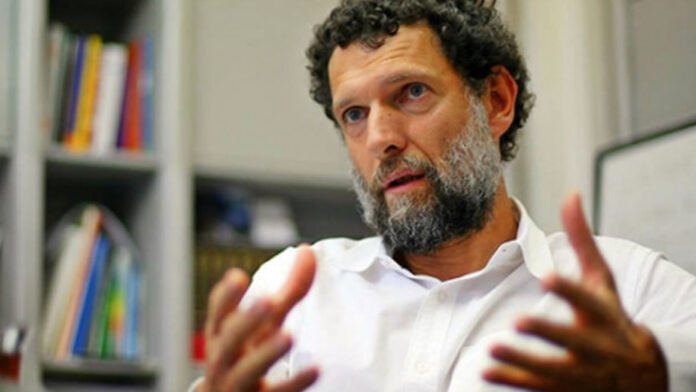Turkish philanthropist and businessman Osman Kavala, who has been behind bars for eight years on charges widely viewed as politically motivated, said that lawmakers are no longer granted permission to visit him, Turkish Minute reported, citing the Deutsche Welle (DW) Turkish service.
Kavala, who responded to DW’s questions in writing, is serving a life sentence in İstanbul’s Marmara Prison, a high-security facility west of İstanbul where many political prisoners are jailed.
When asked how he follows political and social developments in Turkey from behind bars, he said he keeps up with current events by watching the news on TV and reading newspapers delivered to the prison. “Until a few months ago, I also benefited from the assessment of lawmakers who visited me. Apparently, something has changed, since they can no longer get permission to see me,” he added.
The 68-year-old said judicial independence had eroded over the years, describing arbitrary detentions as a “normalized” practice in Turkey’s judiciary. “After the president criticized my acquittal [in the Gezi Park trial], the judicial process turned into an act of arbitrary punishment and the rule of law was derailed. … A belief has spread that keeping people in prison, sometimes for long periods, without convincing justification is a normal practice and a right granted to judges,” he argued.
Kavala was first detained in October 2017 and arrested a month later on charges of attempting to overthrow the constitutional order. Although the European Court of Human Rights (ECtHR) ruled in 2019 that his detention lacked reasonable grounds and ordered his release, Turkish courts have refused to comply.
He was acquitted in February 2020 in the Gezi Park case but was immediately rearrested on espionage charges. In April 2022 he received a life sentence without the possibility of parole for allegedly trying to overthrow the government, a verdict upheld by the Supreme Court of Appeals in September 2023. The Justice Ministry rejected a request for retrial in July 2024.
In reply to a question about the apparent decline in international attention to his case, Kavala referred to the infringement procedure launched by the Council of Europe’s (CoE) Committee of Ministers against Turkey in 2022 as a result of the non-implementation of the 2019 ruling.
“… The CoE is responsible for ensuring the implementation of ECtHR judgments and should take appropriate measures in such cases. … However, for the past three years, the committee has refrained from taking concrete action, apparently out of concern that it could strain relations with Turkey,” he commented.
Asked about his plans if released, Kavala said he could not make any. “Not knowing when I will be released, I can’t bring myself to make life plans,” he wrote. “I was 60 when I was arrested, and I have spent most of the time in which I could have been active in civil society behind bars.”
Despite years in prison, Kavala said he remains hopeful. “There is a broad consensus among political parties and civil society organizations that the judiciary must change. I believe the majority of citizens share this desire,” he said.
Kavala also said that having real democracy depends on more than just holding elections and requires the rule of law, an independent media and functioning local governments, stating that “the most urgent task for our republic is to rebuild and protect the foundations of the rule of law.”
Earlier this year the Goethe-Institut awarded Kavala the 2025 Goethe Medal, Germany’s official honor for contributions to international cultural exchange. The jury praised him as an “untiring initiator” who continues to promote dialogue and diversity despite imprisonment.
Kavala’s case remains one of the most emblematic examples of Turkey’s democratic backsliding and the erosion of judicial independence. As of October 2025, he has spent more than 2,900 days behind bars despite widespread calls for his release from governments, legal experts and human rights groups.















